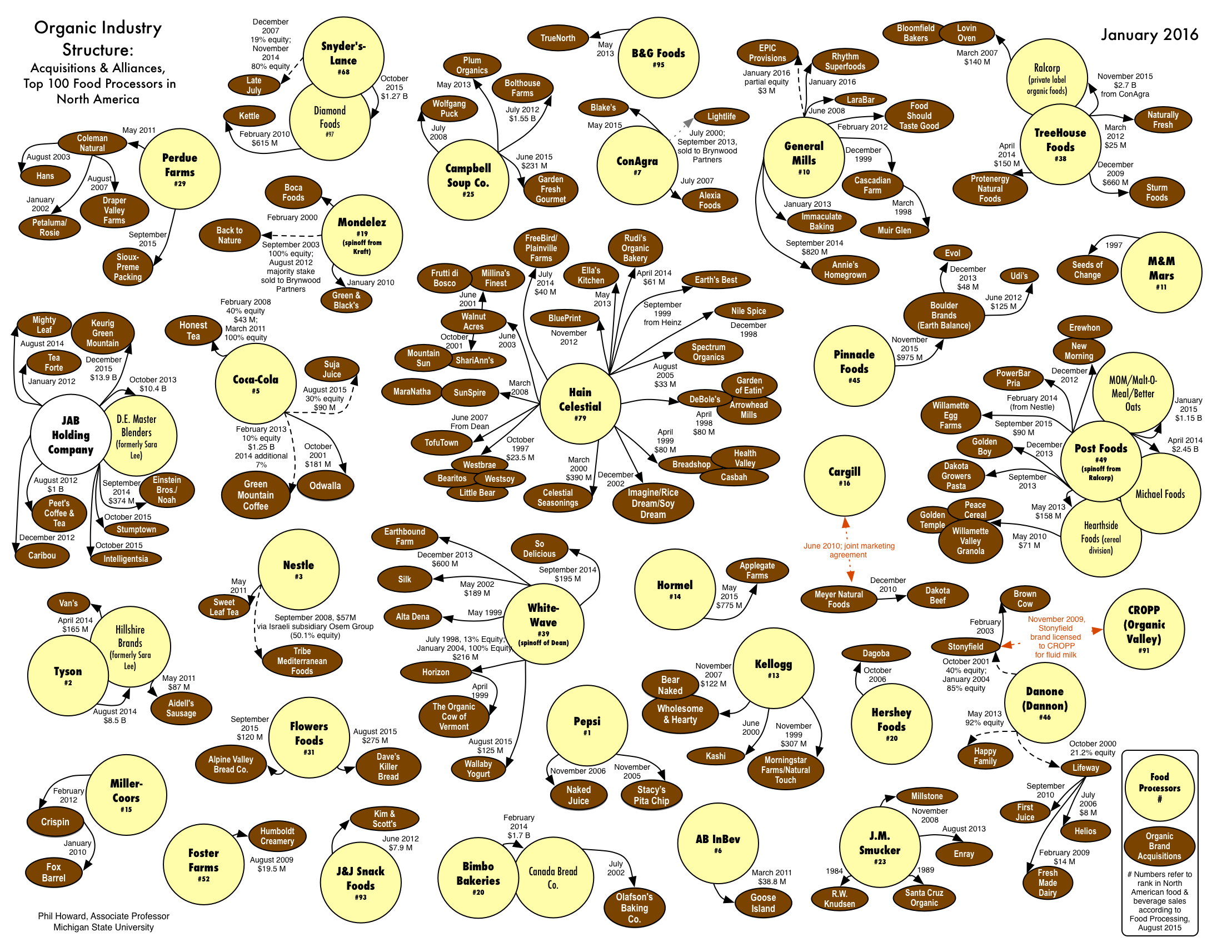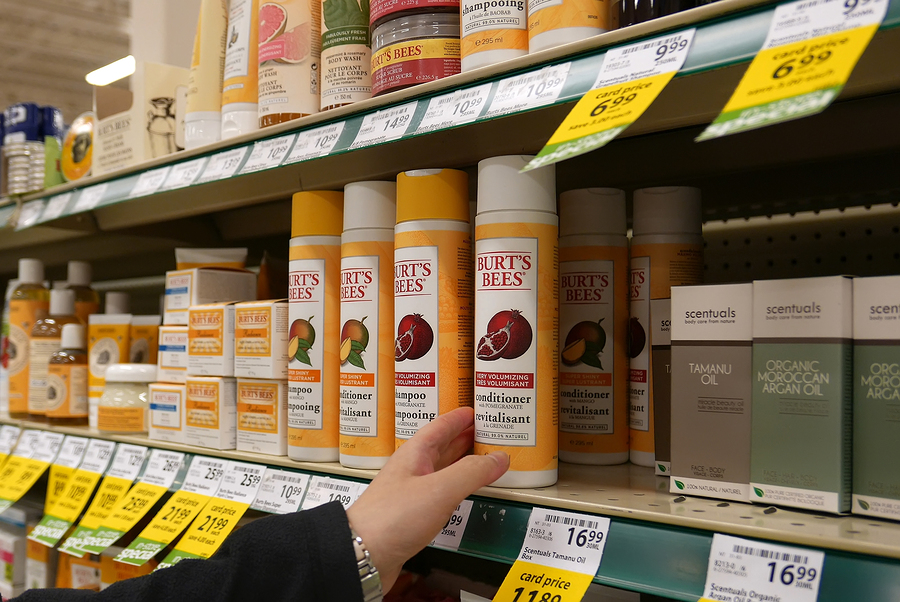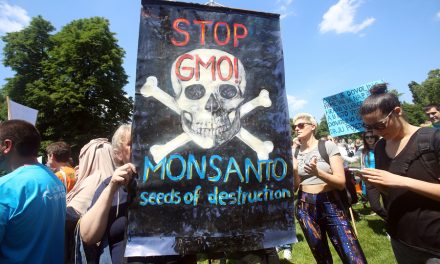Editor’s note: After 2.9K likes, we thought we’d share our own new brand, which isn’t owned by a giant corporation. We are certified organic, made in a wheat free gluten free vegan facility, so check out our CBD choclates and more here >>> ErinHNN.com <<
Oh and Nestle bought Garden of Life and Atrium Innovations, so now there are even fewer companies like ours, that are truly pure.
These days the truth isn’t always black and white. Take for instance the once small, natural brand, Burt’s Bees. A quick visit to their website will give you their backstory and take you into the future of their brand. However, absent from that story is the fact that the company was purchased by The Clorox Company in 2007. The same Clorox Company that makes and sells harmful to humans and the environment, bleach.
RELATED STORY:
They aren’t alone though. As consumers have become more educated in recent years about what goes in and on their bodies, they have increasingly demanded better and healthier products- for themselves and the environment. And some Fortune 500 companies are paying attention and have been “buying up ‘natural’ brands and intentionally keeping quiet about it.” 1
With a reputation for being “natural” companies expand their clout among those who consciously use their dollars. And that’s an expanding market.
Check out the following list of Fortune 500 companies who have gone natural:
| Natural Brand | Owned By | |
| 1 | Burt’s Bees | The Clorox Company |
| 2 | Tom’s of Maine | Colgate Palmolive |
| 3 | The Body Shop | L’Oreal |
| 4 | Cascadian Farm | General Mills |
| 5 | Lära Bar | General Mills |
| 6 | Annie’s Homegrown | General Mills |
| 7 | Bear Naked | Kellogg’s |
| 8 | Kashi | Kellogg’s |
| 9 | Silk | Dean Foods |
| 10 | Odwalla | Coca-Cola Company |
| 11 | Honest Tea | Coca-Cola Company |
| 12 | Naked Juice | PepsiCo |
But, is it really that big of a deal that huge companies not known for being especially environment or human conscious, are buying small companies that are? According to Groundswell, there are pros and cons:2
1) Pro: Increased availability
A bigger company has the distribution and industry expertise to make niche products mainstream and therefore available to more buyers. For instance, in 2011, Coca-Cola Company bought Honest Tea and it’s CEO, Seth Goldman, “stayed on to oversee a massive growth in sales, from availability in 15,000 retail outlets before the investment to over 100,000 today.”
2) Pro: Higher environmental and social standards
After Clorox bought Burt’s Bees, they paired up with the Sierra Club to launch Green Works, a line of environmentally friendly house-cleaning products. While the line has its critics, it’s still a step up from typical chemical-laden cleaners.
1) Con: Operating at scale should make natural products cheaper but it doesn’t.
Most large corps are publicly traded and accountable to shareholders looking for a high return. Money talks, it’s that simple.
2) Con: Sneaky advertising.
People who buy natural products and organic food naturally assume that the company selling those items hold the same values they do. But that’s not necessarily the case. Groundswell says, “I find it disingenuous that nowhere on the products themselves do these 12 brands identify their corporate ownership; it’s up to the consumer to find the information on their websites, usually buried in a small-font FAQ section.” We would agree.
In fact, “many of the corporations owning these natural brands actively lobby for policies that are decidedly anti-nature. For instance, PepsiCo, Coca-Cola and Kellogg’s are among the companies that donated millions in 2012 against efforts in California to label genetically modified organisms (GMO).”
3) Con: Corporations may not uphold the original standards
The Cornucopia Institute has had to call out several brands for cutting corners after they were acquired by bigger corporations; GMO grains and pesticide residues in Kashi cereal; the chemical carrageenan in Tom’s of Maine toothpaste; and inorganic manufacturing processes in Silk soymilk, among others.
Still, other brands have secretively changed their products’ formulas without any notice or have started all new product lines that don’t really fit with the brand they purchased.
4) Con: The term “natural” loses its meaning.
The term “organic” has a legal definition under the Organic Foods Production Act of 1990. The same cannot be said for the term, “natural.” This means that big companies might use the word only and fill their products full of GMOs and pesticides. The days of us trusting a company to be honest are long gone. We still have to read labels. We cannot let our guard down.
 So, what are our options once the natural brands we love are bought up? Our voices. Check out the infographic we posted the other day from the Cornucopia Institute and find your brand. If they are on the list and their new and bigger parent company is doing something you don’t agree with, let them know.
So, what are our options once the natural brands we love are bought up? Our voices. Check out the infographic we posted the other day from the Cornucopia Institute and find your brand. If they are on the list and their new and bigger parent company is doing something you don’t agree with, let them know.
If that doesn’t work, look for an alternative. A couple of good resources for health conscious and organic products are Thrive Market and Brandless. You can also check out The Environmental Working Group. They publish helpful consumer guides that rate over 80,000 products based on nutrition, ingredient concerns, and processing.












